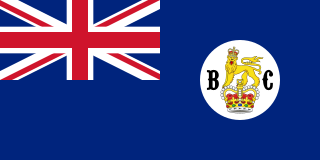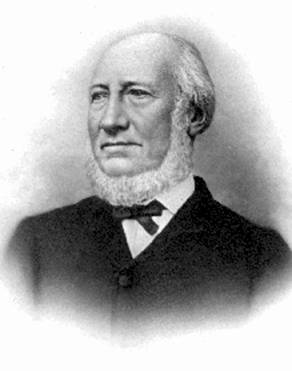
British Columbia is the westernmost province of Canada. Situated between the Pacific Ocean and the Rocky Mountains, the province has a diverse geography, with rugged landscapes that include rocky coastlines, sandy beaches, forests, lakes, mountains, inland deserts and grassy plains. British Columbia borders the province of Alberta to the east; the territories of Yukon and Northwest Territories to the north; the U.S. states of Washington, Idaho and Montana to the south, and Alaska to the northwest. With an estimated population of over 5.6 million as of 2024, it is Canada's third-most populous province. The capital of British Columbia is Victoria, while the province's largest city is Vancouver. Vancouver and its suburbs together make up the third-largest metropolitan area in Canada, with the 2021 census recording 2.6 million people in Metro Vancouver.

Vancouver Island is an island in the northeastern Pacific Ocean and part of the Canadian province of British Columbia. The island is 456 km (283 mi) in length, 100 km (62 mi) in width at its widest point, and 32,100 km2 (12,400 sq mi) in total area, while 31,285 km2 (12,079 sq mi) are of land. The island is the largest by area and the most populous along the west coasts of the Americas.
A sheriff is a government official, with varying duties, existing in some countries with historical ties to England where the office originated. There is an analogous, although independently developed, office in Iceland that is commonly translated to English as sheriff.

The history of British Columbia covers the period from the arrival of Paleo-Indians thousands of years ago to the present day. Prior to European colonization, the lands encompassing present-day British Columbia were inhabited for millennia by a number of First Nations.

Sooke is a district municipality on the southern tip of Vancouver Island, Canada, 38 kilometres (24 mi) by road from Victoria, the capital of British Columbia. Sooke, the westernmost of Greater Victoria's Western Communities, is to the north and west of the Sooke Basin. It is a regional centre for residents in neighbouring communities, including Otter Point, Shirley and Jordan River.

The lieutenant governor of British Columbia is the representative of the monarch in the province of British Columbia, Canada. The office of lieutenant governor is an office of the Crown and serves as a representative of the monarchy in the province, rather than the governor general of Canada. The office was created in 1871 when the Colony of British Columbia joined Confederation. Since then the lieutenant governor has been the representative of the monarchy in British Columbia. Previously, between 1858 and 1863 under colonial administration the title of lieutenant governor of British Columbia was given to Richard Clement Moody as commander of the Royal Engineers, Columbia Detachment. This position coexisted with the office of governor of British Columbia served by James Douglas during that time.

Sir James Douglas, was a Canadian fur trader and politician who became the first Governor of the Colony of British Columbia. He is often credited as "The Father of British Columbia". He was instrumental to the resettlement of 35 African Americans fleeing a life of racial persecution in San Francisco who arrived in the province aboard the steamship Commodore in what later became known as the Pioneer Committee. In 1863, Douglas was knighted by Queen Victoria for his services to the Crown.

Sir Matthew Baillie Begbie was a British lawyer, politician, and judge. In 1858, Begbie became the first Chief Justice of the Crown Colony of British Columbia in colonial times and in the first decades after British Columbia joined Confederation as a province of Canada.

The Victoria Police Department (VicPD) is the municipal police force for the City of Victoria and the Township of Esquimalt, British Columbia, Canada. It is the oldest municipal police department in Canada west of the Great Lakes, the first Canadian law enforcement agency to deploy tasers and VicPD created the first digital forensic unit in the country. They are also one of the few police departments in Canada to use the G36 rifle.

The Colony of British Columbia was a British Crown Colony that resulted from the 1866 merger of two British colonies, the Colony of Vancouver Island and the mainland Colony of British Columbia. The united colony existed until its incorporation into Canadian Confederation in 1871 as the Province of British Columbia.

The Colony of British Columbia was a crown colony in British North America from 1858 until 1866 that was founded by Richard Clement Moody, who was selected to 'found a second England on the shores of the Pacific', who was Chief Commissioner of Lands and Works for British Columbia and the first Lieutenant-Governor of British Columbia. Prior to the arrival of Moody's Royal Engineers, Columbia Detachment, the Colony's supreme authority was its Governor James Douglas, who was the Governor of the neighbouring colony of Vancouver Island.

The British Columbia Provincial Police (BCPP) was the provincial police service of British Columbia, Canada, between 1858 and 1950.
Gold commissioner was an important regional administrative post in the colonies of the British Empire where extensive gold prospecting took place, including in Canada, Australia, New Zealand and in South Africa. The key responsibilities of gold commissioners were to uphold the law, provide access to the gold fields, issue mining licences, and register gold claims. Such a role was required due to the lawlessness that often followed gold rushes.

The Legislative Assembly of Vancouver Island, sometimes House of Assembly of Vancouver Island, was the colonial parliamentary body that was elected to represent voters in the Colony of Vancouver Island. It was created in 1856 after a series of petitions were sent to the Colonial Office in London protesting the Hudson's Bay Company's proprietary rule over the colony. It was the first elected assembly in British North America west of Ontario. Although at first only handful of colonists met the voting requirement, and most of those that did were tied to the HBC, the franchise was gradually extended, and the assembly began to assert demands for more control over colonial affairs, as well as criticize colonial governor Sir James Douglas's inherent conflict of interest as both governor and Hudson Bay Company's chief factor.

The British Columbia Sheriff Service (BCSS) is a provincial law enforcement agency overseen by the Ministry of the Attorney General in the province of British Columbia, Canada. Founded in 1857, it is the oldest law enforcement agency in the province. Sheriffs are provincial peace officers appointed under the BC Sheriff Act and BC Police Act with authority to enforce all relevant federal and provincial acts, including the criminal code throughout British Columbia while in the lawful execution of their duties.
Leechtown is at the confluence of the Leech River into the Sooke River in southern Vancouver Island, British Columbia. The ghost town, off BC Highway 1 is about 59 kilometres (37 mi) by road northwest of Victoria.
In British Columbia, eight counties are created by the County Boundary Act. The counties exist for the administration of justice and are not used in the administration of government. Local government is organized by municipalities and by regional districts.

The following outline is provided as an overview of and topical guide to British Columbia:

David Cameron was a jurist, merchant, and manager operating across the British Empire. He was unsuccessful as a cloth merchant in Scotland and as a sugar plantation manager in Demerara, Guianas. He became a Hudson's Bay Company clerk in Nanaimo, British Columbia and then a judge in the Colony of Vancouver Island. In 1853, Cameron became the first Chief Justice of Vancouver Island, a position which he held until 1858. He served as a justice until his retirement in 1865.















